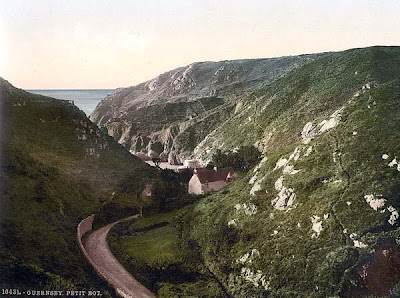“Va t’en.”
The commandwas hissed rather than spoken. But I had no intention of going before I haddone my job, and as soothingly as possible told him so. For now I felt sure that Le Marinel must havegood reason for sending me the urgent message I had received, though to me itlooked as if I might have been more usefully employed in examining into hismental rather than physical condition. And examine him I did, in spite of all his expostulations. His heart was certainly in a flutter; butthat might be set down to his anger just as much to any cardiac weakness, forin other respects he was, for his age, in surprisingly sound condition. He seemed, in fact, to be, with ordinarycare, good enough for many years to come, and I could not see why I had been sourgently pressed by Le Marinel to go out that night. The thought had puzzled me even before I leftPerigord.
Once I haddone with the man I took up the candle from the bed side table with that littleflurry of irritation a doctor is apt to experience in such cases. Short of accident, many a much younger manwould go before de Quettville. Theflutter at his heart was nothing. Heprobably smoked too much. All theseChannel Islanders smoked too much: tobacco was so cheap for them. And my irritation over the needless call was certainly not lessened bycontact with such an ill-mannered patient. He had sunk back the moment I finished, and now reclined with closedeyes, his sharp nose and white night-cap silhouetted grotesquely in blackagainst the bed curtain, the long beard showing like a waterfall. But he was not asleep. As I watched him with disfavor an eyelidfluttered and he waved a hand toward the door.








